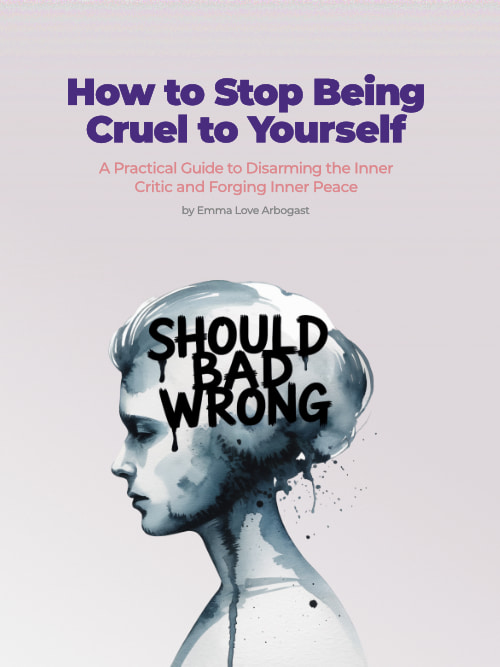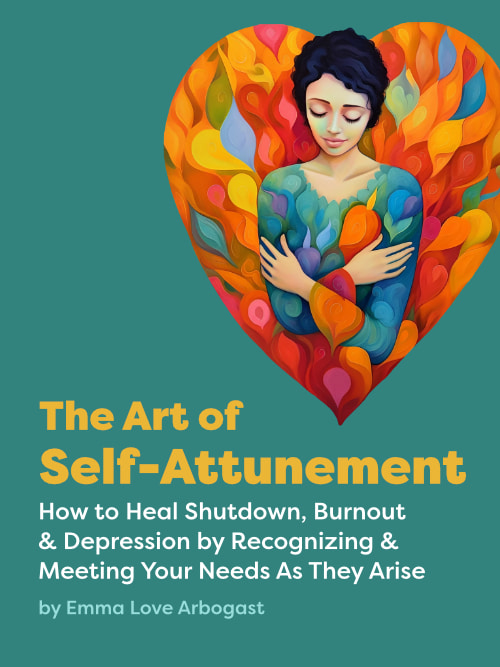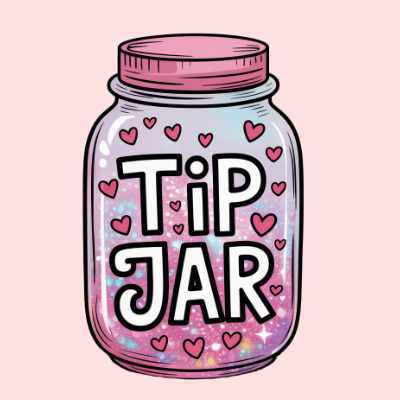What is the difference between ADHD or autistic burnout and depression?
I have suffered from both autistic burnout and depression and my experiences of them were no doubt intertwined, but they are two distinct processes. This article attempts to tease them apart.
The effects of CPTSD (childhood developmental trauma) can also make both worse and complicate the presentation.
I will be referring to neurodivergent burnout as autistic burnout here, but ADHD burnout is similar as these two neurotypes have a lot of overlap.
TLDR: Autistic burnout is about sensory overload and requires environmental adjustments (e.g., quiet spaces, reduced social demands) while depression is about emotional overwhelm from negative self-perception and may need cognitive or medical interventions.
Overlaps
- Exhaustion: Both autistic burnout and depression involve deep physical, mental, and emotional fatigue that can make daily tasks feel insurmountable.
- Low mood and irritability: Both can manifest as sadness, frustration, or feeling emotionally raw, though the reasons for this differ.
- Cognitive challenges: Difficulty concentrating, brain fog, and memory issues can occur in both, impacting productivity and decision-making.
- Social withdrawal: Both may lead to reduced social interaction.
- Sleep and appetite changes: Disruptions in sleep patterns (insomnia or oversleeping) and changes in appetite can occur in both.
Differences in causes and presentation
This should help you determine which is which.
Burnout
Autistic burnout is caused by prolonged nervous system overload.
The irritability is connected to too much incoming input. For example, I would get irrationally angry at someone knocking on my door, and I made a huge sign saying essentially “Unless you have a package for me, go away”. When I was at the grocery store, I would feel enraged at having to deal with the self-checkout helper for any reason, and I would nearly have a melt-down from overly-friendly floor staff asking, “Can I help you find anything?”. I finally just did grocery delivery to avoid all human contact and still be able to eat.
My avoidance of people was not due to social anxiety or low self-esteem—it was due to the fact that people physically engaging in a conversation with me was overwhelming to my already-stressed-out nervous system.
Sensory inputs that are normally just mildly annoying become completely intolerable. Your nervous system is basically constantly screaming, “ENOUGH ALREADY!”.
Meltdowns and shutdowns are common in autistic burnout because the nervous system has no leeway to handle or adapt to stressors.
Emotional symptoms that can feel like depression come from this ongoing exhaustion and inability to cope with “normal” life demands (and the self-judgement that often comes with that).
Additionally, if the sympathetic nervous system (fight or flight, adrenaline, alertness) is activated for too long, the parasympathetic nervous system takes back over with a vengeance as soon as you feel safe again—and this can feel like depression as it is a low-energy state. If you are prone to negative thinking, this is when it would show up as you have reduced executive function which is what regulates mood.
Depression
Depression is a prolonged negative emotional mood or state of mind. It revolves around thoughts of hopelessness or worthlessness that are often rooted in cognitive distortions. These lead to emotional overwhelm rather than sensory overwhelm.
Depression usually involves a harsh inner critic (self-critical self-talk) that goes in circles. My depression felt like my brain was trying to eat me alive—I would spiral in thoughts like, “What is the point of doing anything?”, “I hate myself and I hate my life”, and “If I stopped existing, literally nobody would care.”
Depression feels like a pervasive sense of emotional heaviness (sadness, hopelessness, or despair). It permeates all aspects of life and colors your perception of yourself, other people, and events. Your overall sense is that you suck, your life sucks, the world sucks, basically everything sucks, except those shiny happy people but they are all fake and hollow and hypocritical anyway, so they suck too. There is no real joy anywhere—everything is corrupt and doomed.
Cognitive distortions (e.g., all-or-nothing thinking, catastrophizing, or self-blame) are a root cause of depression. These distorted thought patterns amplify emotional overwhelm, trapping you in a cycle of negative self-perception.
The emotional overwhelm feels internal and about who you are as an individual, rather than being tied to specific sensory or social demands, although it can be worsened by life events. For example, a person with depression might feel terrible after a negative social interaction and spiral into all-encompassing negative thoughts like, “I can never get it right” or “Nobody likes me”.
Differences in recovery path
This is crucial as the treatments are quite different. For example, a depressed person may be worse off spending a lot of time alone where they are just spinning in their negative thought spirals, whereas someone in autistic burnout often needs time alone to recover their nervous system equilibrium.
Burnout
Recovering from autistic burnout requires a prolonged period of minimal stress and maximum comfort.
This involves eliminating and all sources of stress that you can, prioritizing self-care, and accommodating your individual needs to allow the nervous system to recover.
I have a whole FAQ on this that goes into more detail: How do I recover from autistic or ADHD burnout?
Depression
Rest or retreat does not cure depression. Depression responds best to a combination of therapy and medications like SSRIs (Prozac, Lexapro) or NDRIs (Wellbutrin). The right medication for you is determined by trial-and-error with a doctor.
The medication helps the therapy be more effective by helping slow down the spinning thoughts and quiet the negative self-talk. It opens up the ability for the mind to choose better thought pathways to go down.
Therapeutic intervention revolves around addressing cognitive distortions (those thought patterns that are untrue and unhelpful), improving self-esteem and self-worth, and identifying emotional and lifestyle needs that are going unmet and figuring out how they can be met.
You can also have both
If you are prone to depression, then the exhaustion of burnout could definitely make it worse, and if you are depressed, that will also reduce your capacity to deal with stress. Our bodies are unified systems and everything affects everything else.
But the interventions are pretty different, so hopefully this helped you figure out what might help you right now if you are struggling with either of these things. Let me know in the comments if I missed anything—I’m sending you warm gentle vibes of goodwill and wellbeing. 💚
Self-love is a set of skills you can learn

Stop Being Cruel to Yourself
$2.99


Hey there! If you're new here, welcome to the Emmaverse! 🌈✨
About me: I'm autistic/ADHD and I write about how to be free and happy from the inside out.
Keep in touch?
Self-Liberation Society
